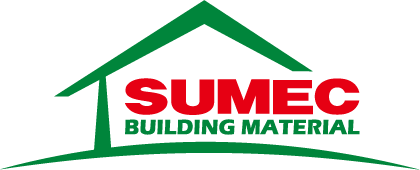Opportunities and Challenges in Africa’s Building Materials Market
Against the backdrop of global economic integration, the vast continent of Africa is gradually becoming a popular choice for enterprises expanding overseas, especially in the building materials sector. The African building materials market holds enormous potential, but it also faces many complex challenges. Let’s take a look at the situation of the African building materials market and the business opportunities it presents.

Against the backdrop of global economic integration, the vast continent of Africa is gradually becoming a popular choice for enterprises expanding overseas, especially in the building materials sector. The African building materials market holds enormous potential, but it also faces many complex challenges. Let’s take a look at the situation of the African building materials market and the business opportunities it presents.
Africa’s population is growing extremely rapidly. The United Nations predicts that by 2050, it will approach 2.5 billion, accounting for approximately 25% of the global population. Such a large and continuously growing population, coupled with the accelerated pace of urbanization, has brought unprecedented demand to the building materials market. A large number of people are migrating from rural to urban areas, leading to a rapid increase in the demand for housing, commercial and office spaces. This directly drives the demand for various building materials such as cement, steel, glass, bricks, tiles, and lighting fixtures. From the perspective of infrastructure construction, governments of African countries have increased their investment in infrastructure to improve transportation, energy and other conditions and promote economic development. Large-scale infrastructure construction projects have led to a continuous rise in the demand for basic building materials such as cement and concrete. In 2023, China Railway Construction and China International Trust and Investment Corporation built a 1,020-kilometer-long highway in Algeria, which used a large amount of building materials such as cement.
With such great demand, can local African enterprises fully provide the required products and services? In fact, this is also a big problem. In reality, Africa’s overall building materials industry foundation is not strong, and the industry is dominated by small-scale enterprises. Due to their small size, these enterprises have limited production capacity and cannot guarantee product quality. It can be said that in the face of strong market demand, they are indeed powerless. When the market has demand but local resource supply is insufficient, imports are naturally needed to make up for the gap. Therefore, we can see that most of Africa’s industrial manufactured goods, such as mechanical equipment, steel, building panels, aluminum materials, and hardware tools, are imported from various countries. As the world’s largest producer of building materials, China also provides the African market with a rich variety of high-quality and affordable building materials, which have strong competitiveness in the African market. SUMEC Building Materials Team has been deeply engaged in the building materials trade for many years, accumulating numerous raw material and product resources. Through continuous project practice, it has also maintained long-term and in-depth cooperative relations with many global financial and logistics partners, which provides a strong guarantee for the company to better serve enterprise customers.
Driven by the concept of sustainable development, the global emphasis on environmental protection is constantly deepening, and Africa is gradually keeping up with this trend. More and more construction projects are inclined to use environmentally friendly and energy-saving building materials. For example, fiber cement boards, with advantages such as durability, fire resistance, moisture resistance, and cost-effectiveness, are increasingly used in residential, commercial, and industrial buildings. This shift in market demand provides new development opportunities for enterprises with the production capacity of green and environmentally friendly building materials.
Local time on June 18th, the highly anticipated BIG5 Construct South Africa was grandly opened at the Gallagher Convention Centre in Johannesburg. SUMEC Building Materials Team made a wonderful appearance with a series of products such as plywood, paper-faced panels, and wall panels, taking a solid step in exploring the African market. During the exhibition, the team actively communicated with visiting and consulting customers to gain an in-depth understanding of the current dynamics of the African building materials market. In the process of communication, the team keenly noticed that behind the booming development of the African building materials market, there are also many pain points and difficulties. On the one hand, Africa has a huge demand for infrastructure construction, but it generally faces problems such as fund shortage, backward technology, and complex construction environment. On the other hand, the relatively backward local building materials production technology and management level in Africa result in high production costs and uneven quality of building materials. The inconsistent standards of the building materials market and the large differences in policies and regulations among African countries also increase the difficulty for foreign enterprises to enter the market. Facing this market change trend, SUMEC Building Materials Team will combine its own advantages to further optimize product combinations and launch more products that meet market demand.
Learn More About Our Products?
Contact Now